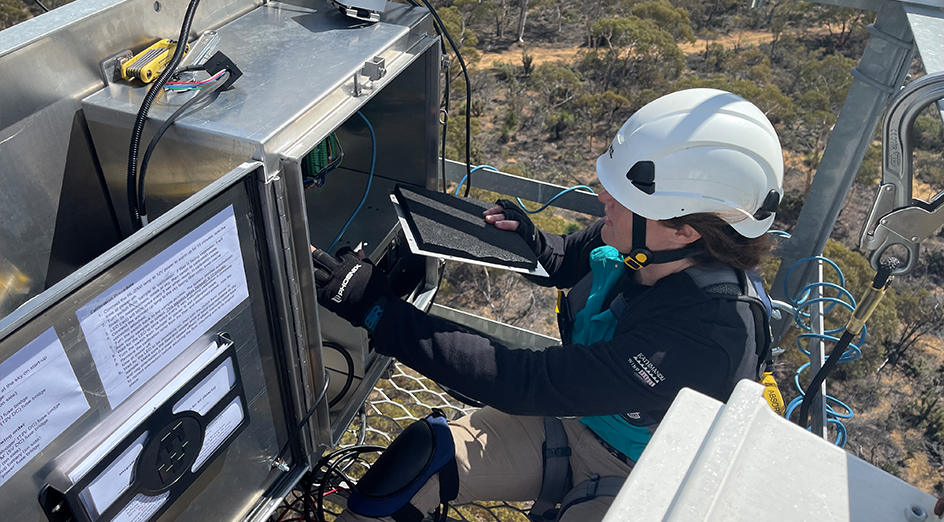A review of 20 years of findings by Australia's and New Zealand's OzFlux - an observation research network measuring carbon, water and biodiversity across key ecosystems in these regions - has revealed the important role these ecosystems play in climate change science.
Led by The University of Western Australia, the review focuses on eight lessons learned about ecosystem response to climate change and variability, disturbance and resilience, drought and heat stress, as well as how this data have improved observational technology and modelling.
Research Fellow Dr Caitlin Moore and Professor Jason Beringer, from UWA's School of Agriculture and Environment, were lead authors of the paper published in Global Change Biology.
 Image: Research Fellow Dr Caitlin Moore collects data.
Image: Research Fellow Dr Caitlin Moore collects data.
"The variability in climate across Australia and New Zealand, as well as extreme events (droughts and flooding), provides a natural laboratory for a global understanding of ecosystems in this time of accelerating climate change," Dr Moore said.
Professor Beringer said by distilling the key lessons learned, we identify where further research is needed to fill knowledge gaps and improve the utility and relevance of the outputs from OzFlux.
Australia's climate has already warmed by 1.44 °C since national records began in 1910, and an emerging dry weather trend in the southern part of the continent has the potential to push some ecosystems to tipping point.
Dr Moore said the paper showed the importance of ecosystem observatories to inform the science and modelling needed for the long-term projections of climate extremes and inform land management strategies.
"As evidence of worsening global fire risk emerges, the natural ability of these ecosystems to recover from disturbances such as fire and cyclones provides lessons on adaptation and resilience to disturbance," she said.
"Drought and heatwaves are common occurrences across large parts of the region and can tip an ecosystem's carbon budget from a net CO2 sink (storing carbon) to a net CO2 source (releasing carbon)."
OzFlux is part of an international network, FLUXNET, which has more than 1000 stations designed to provide continuous, long-term micrometeorological measurements to monitor ecosystems globally.
OzFlux's future plans include ongoing and newly developed interactions with ecophysiologists, ecologists, geologists, remote data collectors and modellers to continue providing these important ecosystem data for the next 20 years, and beyond.






